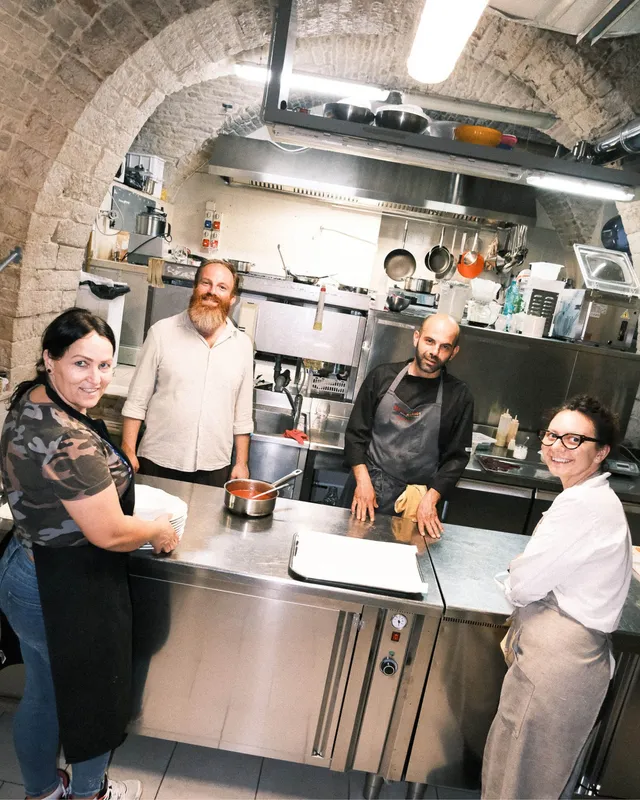Francesco Montaruli
Cucina VillanaFrancesco Montaruli
Cucina VillanaFrederik Gregersen
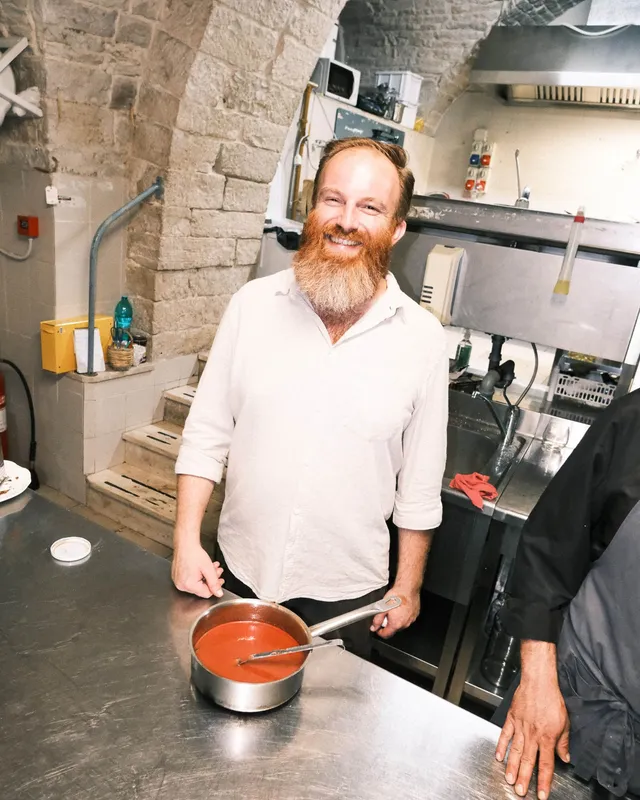
Q
Can you start by introducing yourself?
A
"I'm Francesco, I am 38 years old and I run Cucina Villana together with my brother, Vincenzo. Our culinary journey is deeply rooted in the rich biodiversity of the Murgia National Park, where we embrace the philosophy of ethnobotanic cuisine. Inspired by our childhood experiences of foraging for wild herbs with our father, we aim to bring the flavors of this incredible landscape to our guests. At Cucina Villana, we believe in respecting the land and its seasons, transforming traditional knowledge passed down through generations into dishes that celebrate local ingredients."
Q
What is the one tell that a dish came out of your kitchen?
A
"I realise that a dish is ready to serve when there are no more than four ingredients, and when there is full respect for the ingredients in terms of freshness, harmony, acidity, taste, and texture. You should be able to taste all four ingredients distinctly, showing respect for each one. When we say we respect ingredients, it means serving vegetables in their best expression. If the best expression is raw, then we don’t cook it. It’s important for us that anyone tasting the dish can appreciate each ingredient presented in the best way possible."
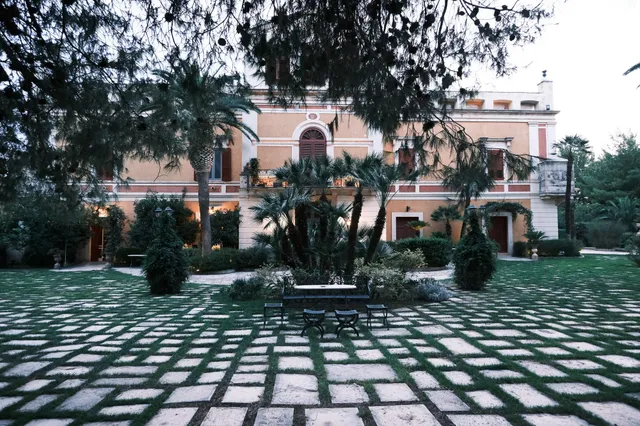
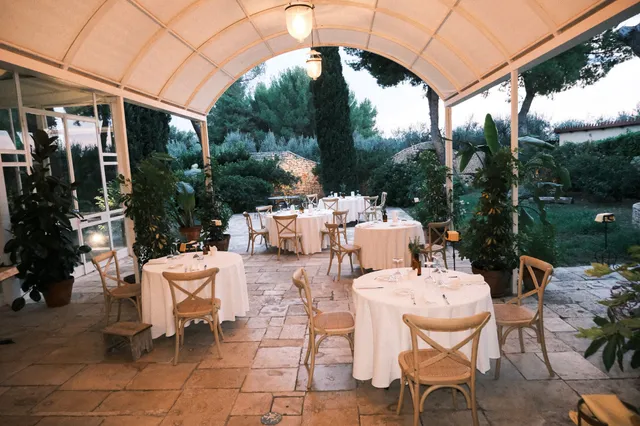
Q
What could be an example of this?
A
"An example is our fresh almond soup, which we used to serve as a starter. We always begin our degustation with fruits, such as almonds served with fresh cucumber and sometimes peaches. We use green almonds that are lacto-fermented, which is very interesting because it’s the same laboratory process used for olives. You have to collect the almonds while they are still green, which is during May. Once processed like olives, they will be ready after a few months and come out soft, allowing you to taste the almond flavor very well."
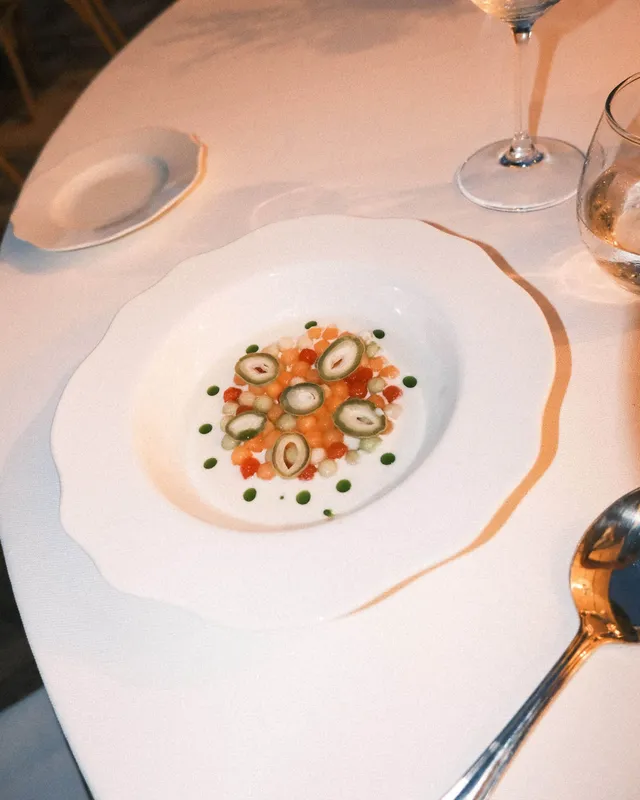
Q
Can you elaborate on how you work with your philosophy and a term like cucina etnobotanica?
A
"Firstly, the Murgia National Park is one of the largest parks in Puglia that has not been inhabited by humans for many centuries. Fortunately, it boasts a wide variety of biodiversity, including vegetables and aromatic plants. Not everyone in our region can recognize or collect these plants. La cucina etnobotanica refers to the relationship between humans and botanical herbs and what that relationship can create. Often, these ingredients are considered ancient or humble, but they truly evoke memories of our ancestors, of a time in Puglia when vegetables were seen as the main dish. Unfortunately, there is still little discussion about this, as Puglia is often known for focaccia, burrata, and orecchiette, which are far removed from our kitchen. Our cooking represents the true tradition of what our grandparents used to prepare."
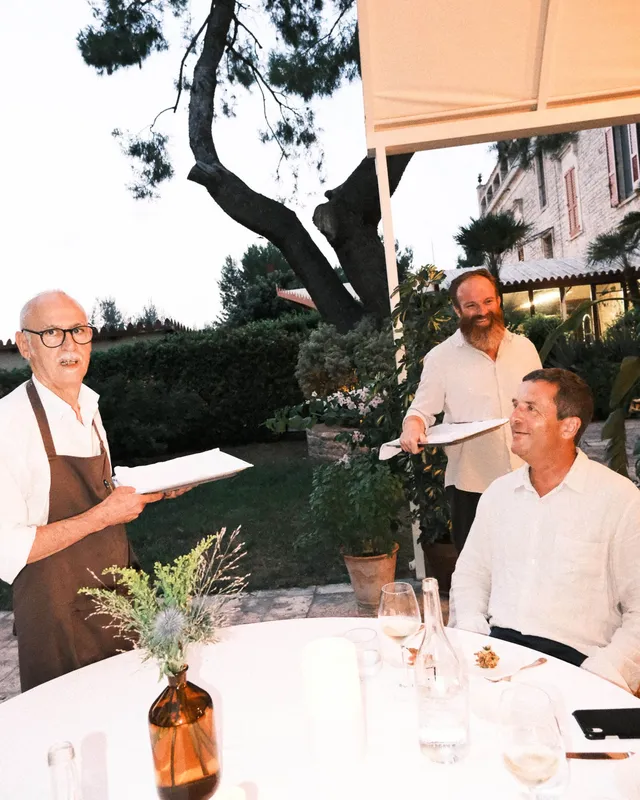
Q
How does your aesthetic work together with the rest of the villa?
A
"The villa has a long and ancient history, with agriculture being the main character—olive trees, vineyards, and everything related to this. Over the past 20-25 years, these elements have started to become more separated. When we entered the villa, we wanted to reconnect the agriculture that has always been alive with the villa and the dining experience, allowing guests to experience this relationship through dishes served elegantly in the beauty of an ancient Masseria. That’s how we envision it."
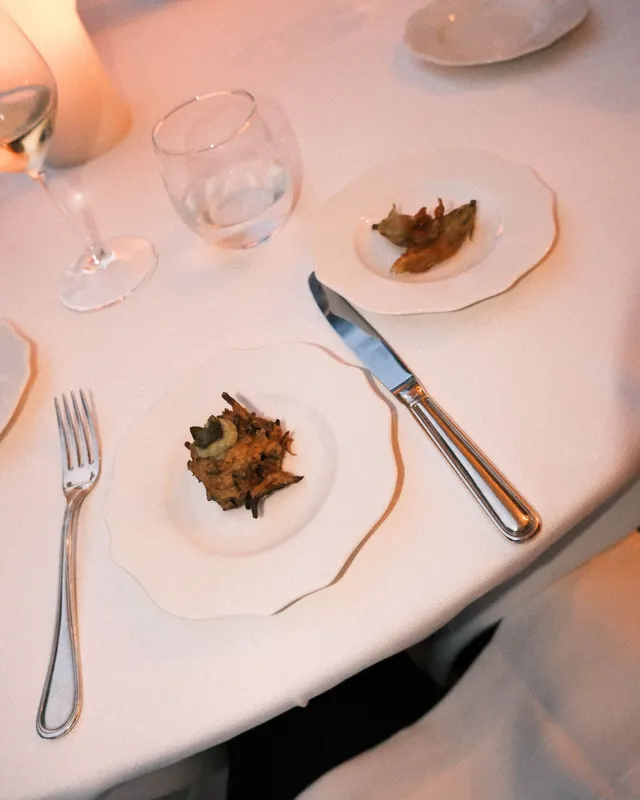
Q
What’s the secret to working with and getting the most out of local produce?
A
"First of all, it is crucial to respect the timing of the ingredients. You have to communicate with the land and understand when to collect and when to allow the herbs to grow. For example, for our aromatic herbs, you must collect them at a specific time, starting from June 24th, which is San Giovanni, marking the beginning of the balsamic period for our herbs. You must respect these periods and understand when the right moment is to collect. Of course, there’s another important aspect that has emerged in recent years: climate change. With shifting temperatures, it’s not always possible to start picking on June 24th. It’s more of a tradition than a strict rule. Last year, due to heavy rain during spring, we had to start earlier. Everything ends up being a sincere dialogue with the land and the territory. This is something you cannot learn from books, but you have to learn to communicate with the plants."
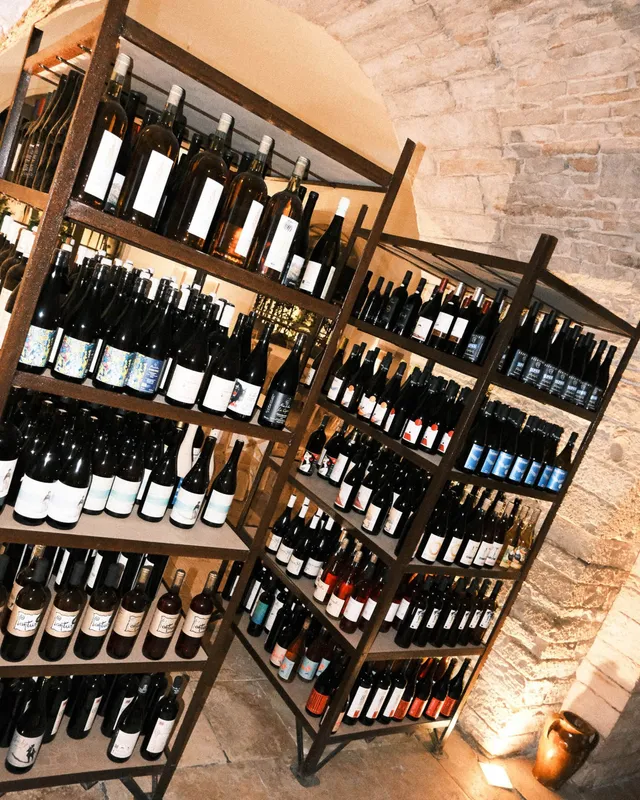
Q
What is your biggest dream for Cucina Villana?
A
"My dream is to create this network to document what our ancestors used to do and to prevent it from being lost. This heritage is something we have, and we must make it understood that the biodiversity we have in Puglia is unique. No other region in Italy has the same richness. The dream is for everyone to realize that vegetables are a vital part of the Italian and Pugliese diet, and that it’s not a poor diet.
I also dream of a future where meat becomes a side dish and vegetables take the lead. I hope the next generation will appreciate this shift. Of course, meat and fish are important ingredients that we enjoy, but it’s not sustainable to have them in our diet five out of seven days. We want to care more for the territory than we currently do, which is very important to our mission. We love to cook, host guests, and have parties, but we also want to share our knowledge and provide an experience. The most beautiful moments are when guests leave with new thoughts in their minds. When they learn something, that’s when we feel we have succeeded."
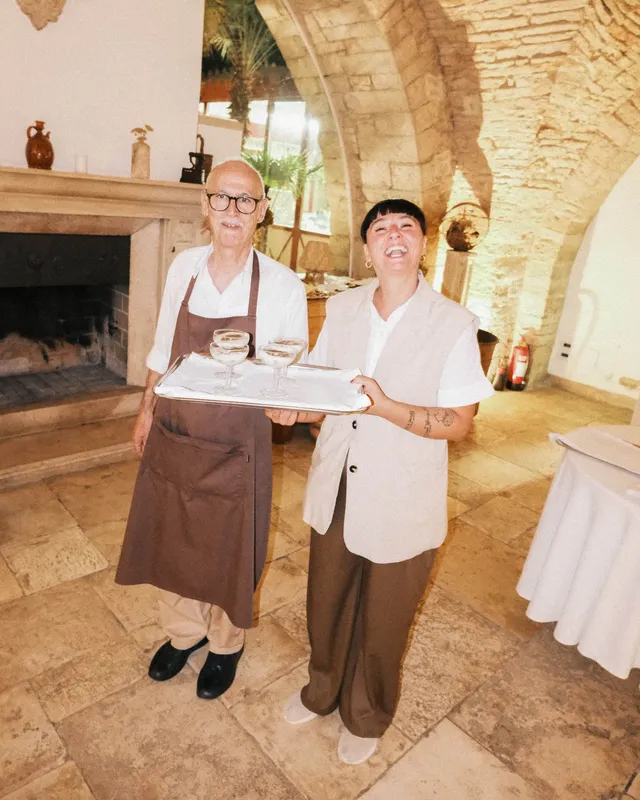
Q
Besides the park and your local area, where do you look for inspiration?
A
"Inspiration comes from working with and being curious about new and old plants, but mostly from conversations with people over 80 years old. They know better than we do what is edible and what is not. It’s not common for our generation to not go to the supermarket and go to the countryside to collect wild ingredients, but it was normal for our grandparents. The inspiration comes from listening to them and engaging with farmers, shepherds, and elders who are custodians of the territory. They are the true repositories of the land's identity and can speak about a Puglia that doesn’t follow fashion. It’s important for young people to dedicate time to these last living witnesses and learn about the real food that our ancestors used to eat. The next generation must become spokespeople for this wisdom by documenting the originality of their ancestors. It’s also essential to share what we learn with other farmers and producers our age, creating a network among these communities."
